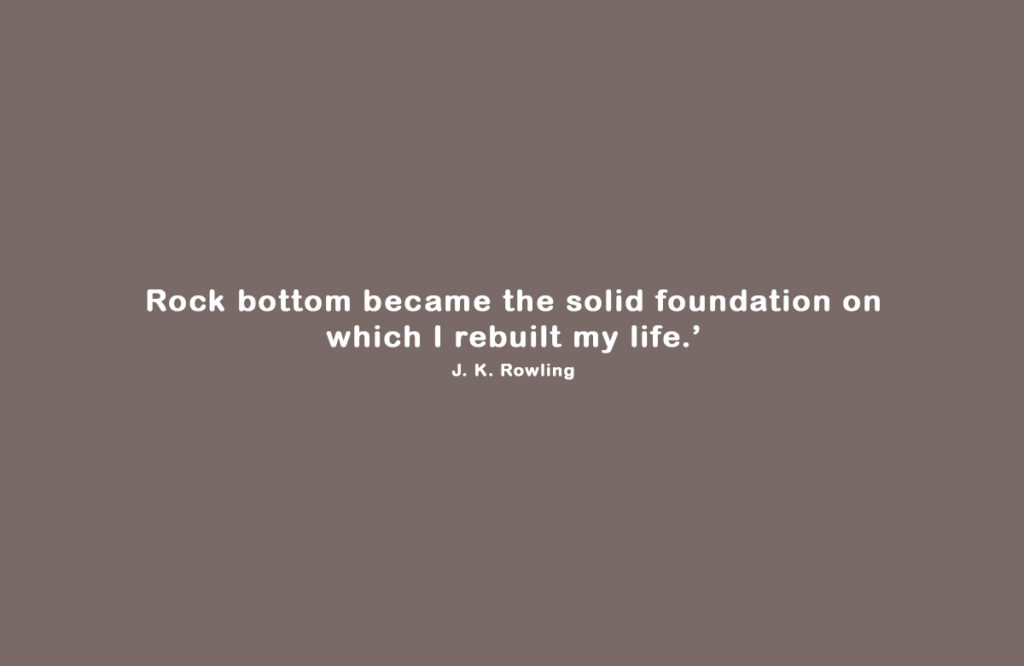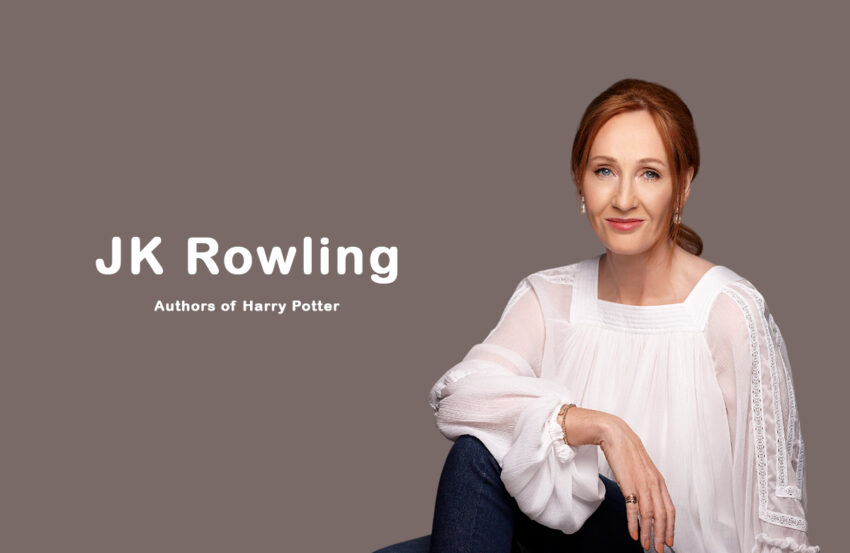In the early 1990s, J.K. Rowling was a broke, unemployed single mother, living on welfare in a tiny Edinburgh flat, battling depression and raising a baby daughter alone.
But in that dark period, she carried a spark — a story about a boy wizard named Harry Potter.
After being rejected by 12 publishers, her manuscript was finally accepted. The rest is history.
Today, Harry Potter is a global empire — 7 books, 8 movies, theme parks, merchandise, and a legacy that changed children’s literature forever.
This is the incredible story of how J.K. Rowling rose from rock bottom to become one of the most successful authors in history — proving that dreams can survive even the darkest times.
Early Life & Struggles
From Daydreamer to Determined Writer
Born Joanne Rowling in 1965 in Yate, England, she grew up loving stories. By age 6, she wrote her first tale — Rabbit, about a sick animal who gets a potion.
She studied French and Classics at the University of Exeter and worked briefly in research and bilingual secretarial roles.
But life took a hard turn:
- Moved to Portugal to teach English
- Married, had a daughter, and divorced within a few years
- Returned to the UK with almost nothing — just a suitcase and her unfinished manuscript
At her lowest point, she lived on state benefits, wrote in cafes while her baby slept, and battled clinical depression.
Yet, through it all — she kept writing.
The Birth of Harry Potter
A Story That Changed Everything
The idea for Harry Potter came in 1990 while Rowling was delayed on a train from Manchester to London.
She later said:
I saw this scrawny, black-haired, bespectacled boy who didn’t know he was a wizard.
Over the next five years, she wrote “Harry Potter and the Philosopher’s Stone” (later Sorcerer’s Stone in the U.S.) in cafes, often crying while writing.
She faced:
- Financial hardship
- Rejection from 12 major publishers
- Doubts about her own talent
But in 1997, Bloomsbury Publishing took a chance — offering a small advance of £1,500 and advising her to get a day job, as children’s books don’t make money.
They were wrong.
From Book to Global Phenomenon
The Wizarding World Takes Over
Once published, Harry Potter exploded in popularity:
- Won the Nestlé Smarties Book Prize within months
- Translated into over 80 languages
- Sold over 500 million copies worldwide
- Became the fastest-selling book series in history
The films, released from 2001 to 2011, grossed over $7.7 billion, making it one of the most successful franchises ever.
Rowling didn’t just write a story — she built a cultural phenomenon that inspired:
- A love of reading in a digital age
- Themes of friendship, courage, and standing up to evil
- Generations of fans who grew up with the characters
Beyond Harry Potter – Building a Legacy
A Creative Force in Literature and Film
After completing the series, Rowling didn’t stop:
- Wrote “The Casual Vacancy” (2012), a novel for adults
- Published crime novels under the pseudonym Robert Galbraith
- Created “Fantastic Beasts and Where to Find Them”, a prequel series to Harry Potter
- Became a producer and screenwriter for the Fantastic Beasts films
She also founded Lumos, a charity focused on ending institutionalization of children worldwide — inspired by her own advocacy for social justice.
Philanthropy and Public Voice
Using Fame for Good
Despite her wealth (once briefly the first billionaire author), Rowling has given millions to charity, including:
- Multiple Sclerosis research (her mother died from MS)
- Poverty relief
- Children’s welfare through Lumos
She’s also spoken openly about:
- Mental health struggles
- Domestic abuse
- The importance of empathy and resilience
Though her public statements on gender identity have sparked debate, her commitment to free speech and social issues remains central to her identity.
Business & Life Lessons from J.K. Rowling
- Failure Can Be a Foundation
Rowling says her rock-bottom years taught her perseverance — and made her stronger. - Believe in Your Idea
Even when publishers said no, she believed in Harry Potter. - Write for Yourself First
She didn’t write to please others — she wrote the story she wanted to read. - Rejection Isn’t the End
12 rejections didn’t stop her — the 13th chance changed everything. - Protect Your Imagination
She once said:
Imagination is not only the uniquely human capacity to envision that which is not, but the fuel that ignites progress.
Motivational Takeaways

J.K. Rowling’s journey offers powerful lessons for writers, entrepreneurs, and dreamers alike:
| LESSON | EXPLANATION |
| Your Lowest Point Can Be Your Launchpad | Rock bottom became Rowling’s foundation for success. |
| Keep Going, Even When No One Believes | Persistence beats rejection. |
| Create Something That Matters | Harry Potter gave kids courage, hope, and magic. |
| Turn Pain Into Purpose | Her struggles fueled her storytelling depth. |
| Success Is Not the End | She keeps creating, giving, and growing. |
The Lasting Magic of Harry Potter
More Than Just a Book Series
Harry Potter did more than entertain — it:
- Made reading cool again
- Taught values like loyalty, bravery, and standing up for what’s right
- Created global fan communities
- Inspired theme parks, stage plays (Harry Potter and the Cursed Child), and educational programs
The message is timeless:
Happiness can be found even in the darkest of times, if one only remembers to turn on the light.
And for millions, J.K. Rowling was that light.
Conclusion – From Welfare to Wizardry
J.K. Rowling’s rise from a struggling single mom to the creator of a global literary empire is a testament to imagination, resilience, and unshakable belief in oneself.
Her story teaches us that no dream is too big, no failure too final, and no beginning too humble.
So whether you’re writing a book, starting a business, or just trying to survive a tough chapter, remember her words:
Rock bottom became the solid foundation on which I rebuilt my life.
Stay brave. Stay creative. And never underestimate the power of a good story.
